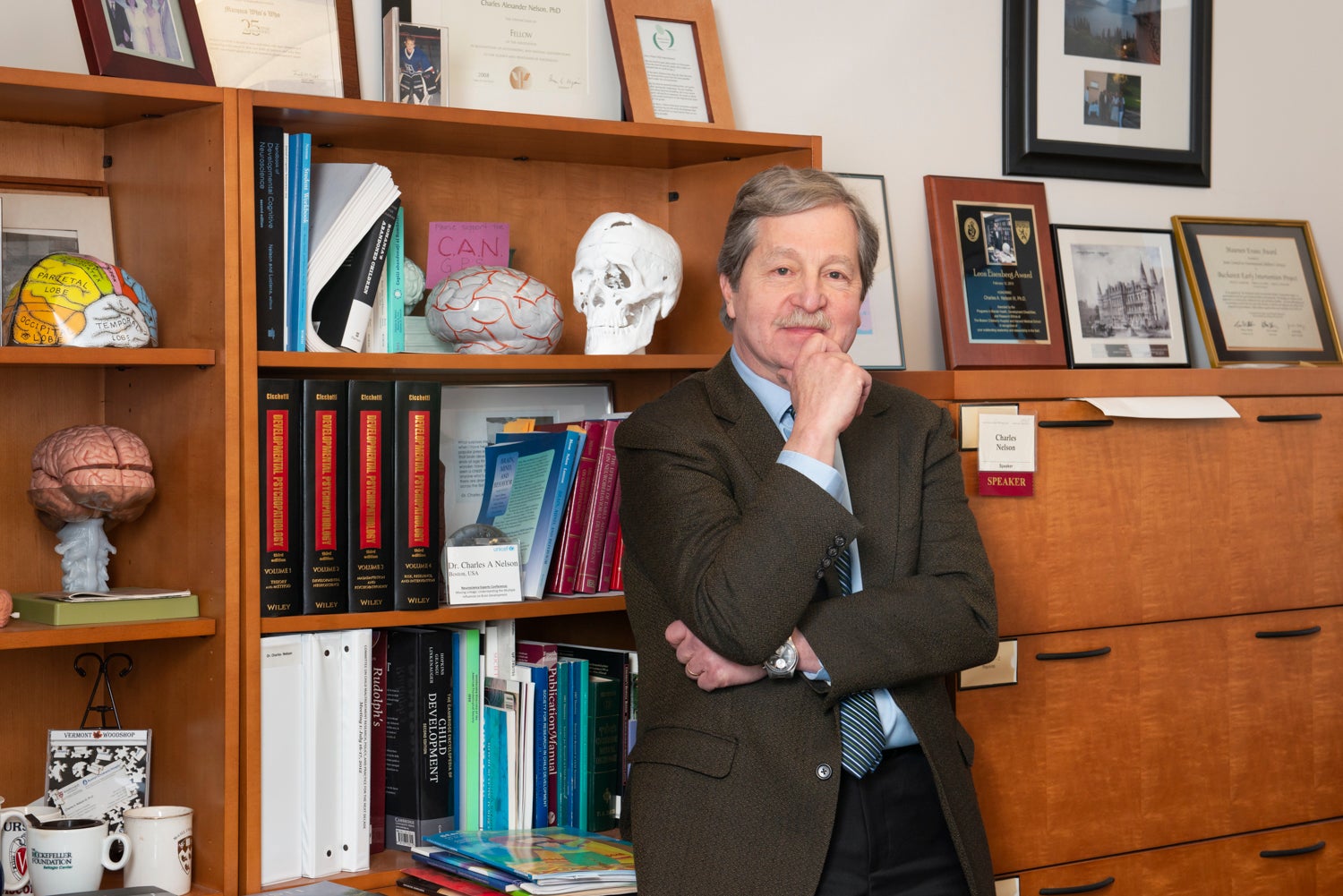Charles A. Nelson, PhD
Professor of Pediatrics and Neuroscience, Harvard Medical School
Professor of Pscyhology in Psychiatry, Harvard Medical School
Richard David Scott Chair in Pediatric Developmental Medicine Research, Boston Children's Hospital
Professor of Pscyhology in Psychiatry, Harvard Medical School
Richard David Scott Chair in Pediatric Developmental Medicine Research, Boston Children's Hospital

Developmental Cognitive Neuroscience
My overarching interests lie in the genetic and experiential factors that can undermine healthy brain development in infants and young children. Over the past two decades my work has focused on two fundamental problems. The first concerns identifying errors in brain development that lead to disorders like autism, and whether measures of brain activity obtained in the first months of life can be used to identify which infants will subsequently develop autism. A second line of work has focused on the effects of early life adversity on the course of brain and behavioral development. In this work I have identified critical periods that impact the long-term consequences of exposure to adversity. Perhaps the most prominent example of this work comes from a 25-year longitudinal study of children growing up in state run orphanages in Bucharest, Romania. The Bucharest Early Intervention Project (BEIP) s a randomized controlled trial of foster care as an alternative to institutional care. Over its 2 decade long history, my colleagues and I have consistently demonstrated that children experiencing prolonged institutional care (characterized by profound neglect) suffer from a host of developmental sequelae including diminished intellectual functioning, high rates of psychopathology and dramatic alterations in brain development; by contrast, those removed from institutional care and placed in high quality foster care show dramatic recoveries in function, but often only if such placement occurred before the age of 2 years.
